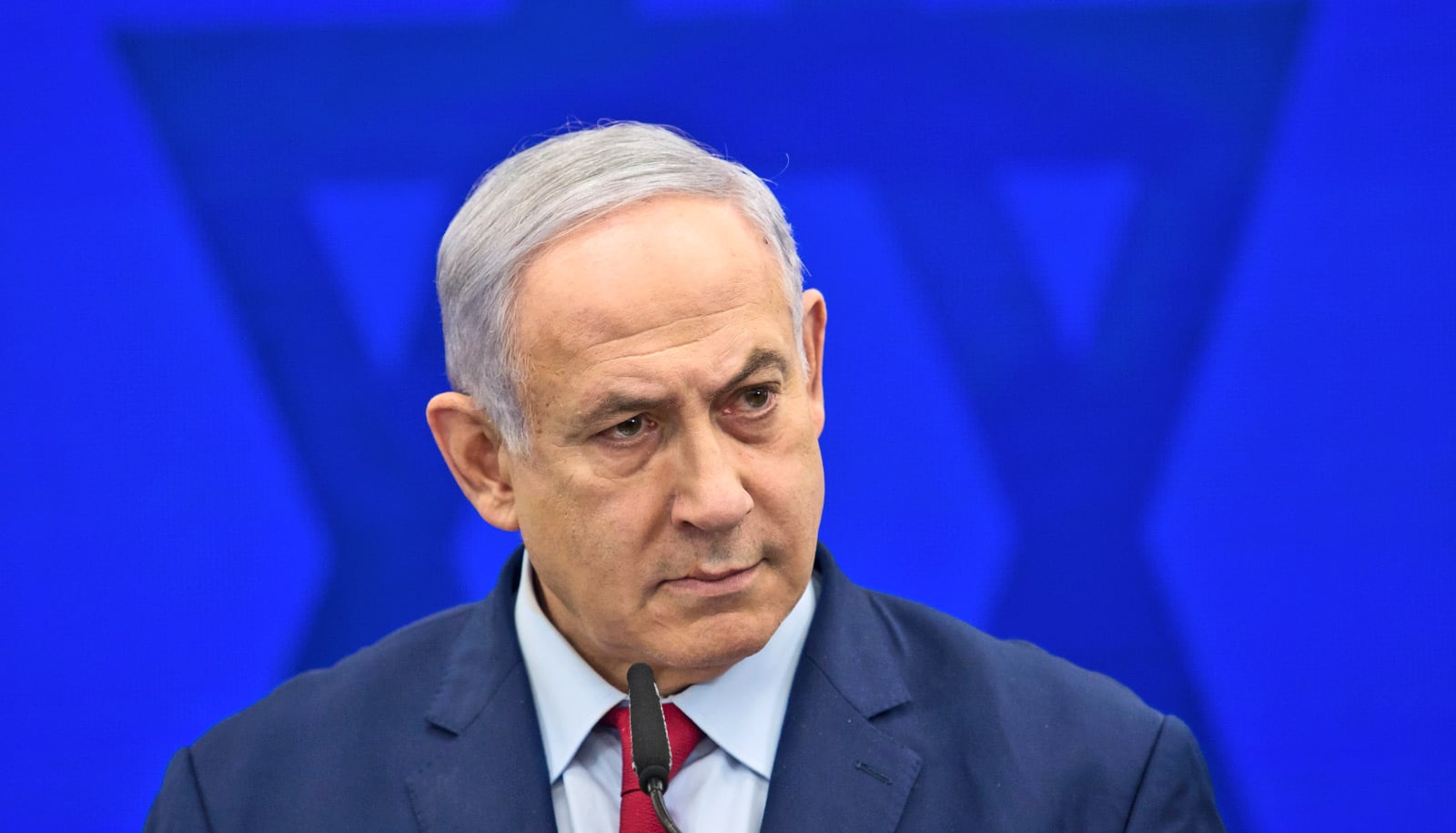While the ultimate outcome of Israeli elections earlier this week remains unsettled, it seems certain that Benjamin Netanyahu, the nation’s longest-serving prime minister, faces serious trouble.
Netanyahu’s Likud party failed to win enough seats to form a majority in the Israeli parliament. Though the main opposition party, Blue and White, also fell short, its leader, Benny Gantz, is forming a unity government that very likely won’t back Netanyahu as prime minister.
Here, Yehudah Mirsky, professor of Near Eastern and Judaic Studies and of the Schusterman Center for Israel Studies at Brandeis University, offers his analysis of the momentous political changes taking place in Israel:
How do you see the current political situation playing out?
It’s hard to say. The most obvious way forward would be a stable, substantial coalition of the two largest vote-getting parties, rightist Likud and centrist Blue and White, joining with the rightist Yisrael Beiteinu (Israel Our Home) party. These parties together would hold 72 of parliament’s 120 seats. But that is far from a done deal.
Does this spell the end of Netanyahu’s prime ministership?
Netanyahu is now in the worst shape he’s been in for some time. He is facing a looming indictment in several corruption cases and Gantz promised during the campaign not to join a coalition with a leader who was under indictment. At the same time, Netanyahu is a very formidable politician and he’s not about to go gently.
What caused Netanyahu’s fall?
The arrogance, the endless legal troubles, the air of corruption around him. People are very tired of his relentless assault on the press, the judiciary, the police, the army, and Arab minorities. And people naturally tire of any leader who serves this long.
The election, the second in a year, was called because Netanyahu could not get Avigdor Lieberman and his Israel Our Home party to enter his coalition. Did Lieberman’s refusal to join turn out to be a good strategic move?
Lieberman is the really big winner in this election. He’s emerged as the kingmaker here, which, given how checkered his own career has been, is remarkable. But he has the support of many Jewish immigrants from the former Soviet Union, as well as secularists.
What does Lieberman want?
The issue he has been pushing these past years is taking on the ultra-Orthodox. For decades, they’ve been exempted from serving in the military. They’ve played a major role in regulating marriage and divorce and received government funding to maintain an enclaved way of life.
Lieberman is the first major Israeli politician willing to expend political capital to take on the religious status quo, and for now, it’s working. But he isn’t a fan of liberal American Judaism by any means and is a hard-right nationalist to boot.
The other big winner was the Joint List, a group of Arab-Israeli parties that received the third-most votes.
This is huge. The leader of the Joint List, Ayman Odeh, will likely become the official leader of the opposition in parliament. Netanyahu has made running against Israel’s Arab citizens his reelection strategy for a number of years. This backfired on him this time around because it resulted in increased turnout among the Arabs. It also generated opposition among Jewish citizens who didn’t like what he was doing to the fabric of civic life.
How do you expect Israel’s relations to the Palestinians to change?
Nobody’s going to see a Palestinian state on the rise anytime soon. The difference between Netanyahu and the Blue and White party is the difference between there being an utter diplomatic stalemate, or there being the possibility of some productive conversations about the future.
Crucially, part of why Blue and White did so well is because three of its four top leaders all were chiefs of staff of the Israeli army and one of them was also a minister of defense. These are not especially dovish leaders but they’re not harshly militant either.
And what about relations with the United States?
Trump has already started distancing himself from Netanyahu. He said our relationship is with a country, not with a person. It’s true. That’s how American presidents are supposed to think about these things.
John F. Kennedy once asked Israel’s founding leader, David Ben-Gurion, what he could do to help Jewry. Ben-Gurion said, be the best president you can be for America.
Source: Brandeis University



